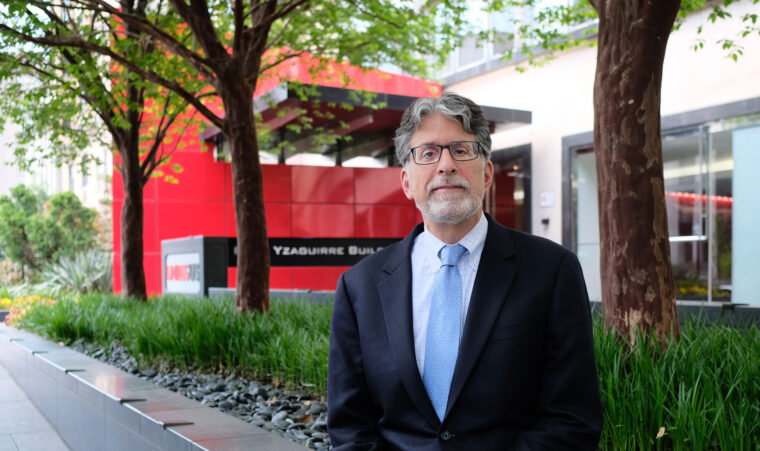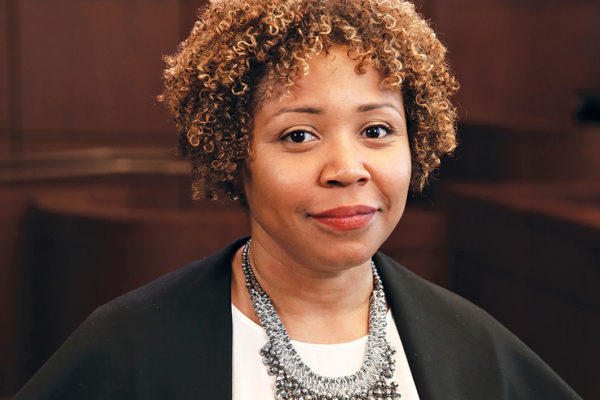There are about 2.4 million farm workers in the United States whose crucial role in our food chain remains invisible to most Americans. They work long hours in fields, orchards, dairies and ranches, often in poor or dangerous conditions with low pay and no benefits.
Bruce Goldstein, JD ’80, has worked to alleviate these issues during his 31 years at Farmworker Justice, a Washington, D.C.–based nonprofit organization that gives farm workers tools to improve their wages, their health and safety, their immigration status and their access to the justice system. He has been president and executive director of the organization since 2005.
“We’re trying to empower workers. That’s our mission and that’s how we succeed,” Goldstein says. Farmworker Justice also has won important legislation and court decisions on behalf of farm workers, he says.
In a recent case, Farmworker Justice helped represent a class of 200 Mexican workers who won almost $1 million in lost wages from a Wisconsin company that processes cabbage into sauerkraut. Also, Farmworker Justice was among the groups that sued to stop the Environmental Protection Agency’s attempt to relax pesticide safety regulations and then helped pass federal legislation to protect farm workers from pesticides.
Goldstein’s interest in helping others traces back to Vietnam War protests and the civil rights movement, as well as his Jewish background.
“Growing up Jewish,” he says, “and being very aware of the Holocaust and discrimination against Jews caused me to recognize the difficulties that many people experience. I wanted to help people address unfair treatment.”
While studying labor and civil rights law at Washington University School of Law in the late 1970s, he had internships with Legal Services of Eastern Missouri and Land of Lincoln Legal Assistance Foundation in East St. Louis. Also, in 1979 he was one of the student leaders of an unsuccessful effort to ban U.S. military recruiters from the law school because of military discrimination toward LGBTQ people.
“We were ahead of our time,” he says.
Goldstein met his wife, Robin Talbert, JD ’80, while they were at law school at WashU. Talbert is the former executive director of the AARP Foundation; today, she volunteers and is a consultant for nonprofit organizations. The couple lives in Silver Spring, Maryland, and have two grown sons.
Looking back at his career, Goldstein says, “I feel very fortunate that I’ve had the opportunity to pursue social justice on behalf of disadvantaged people. And I get paid for it!”



